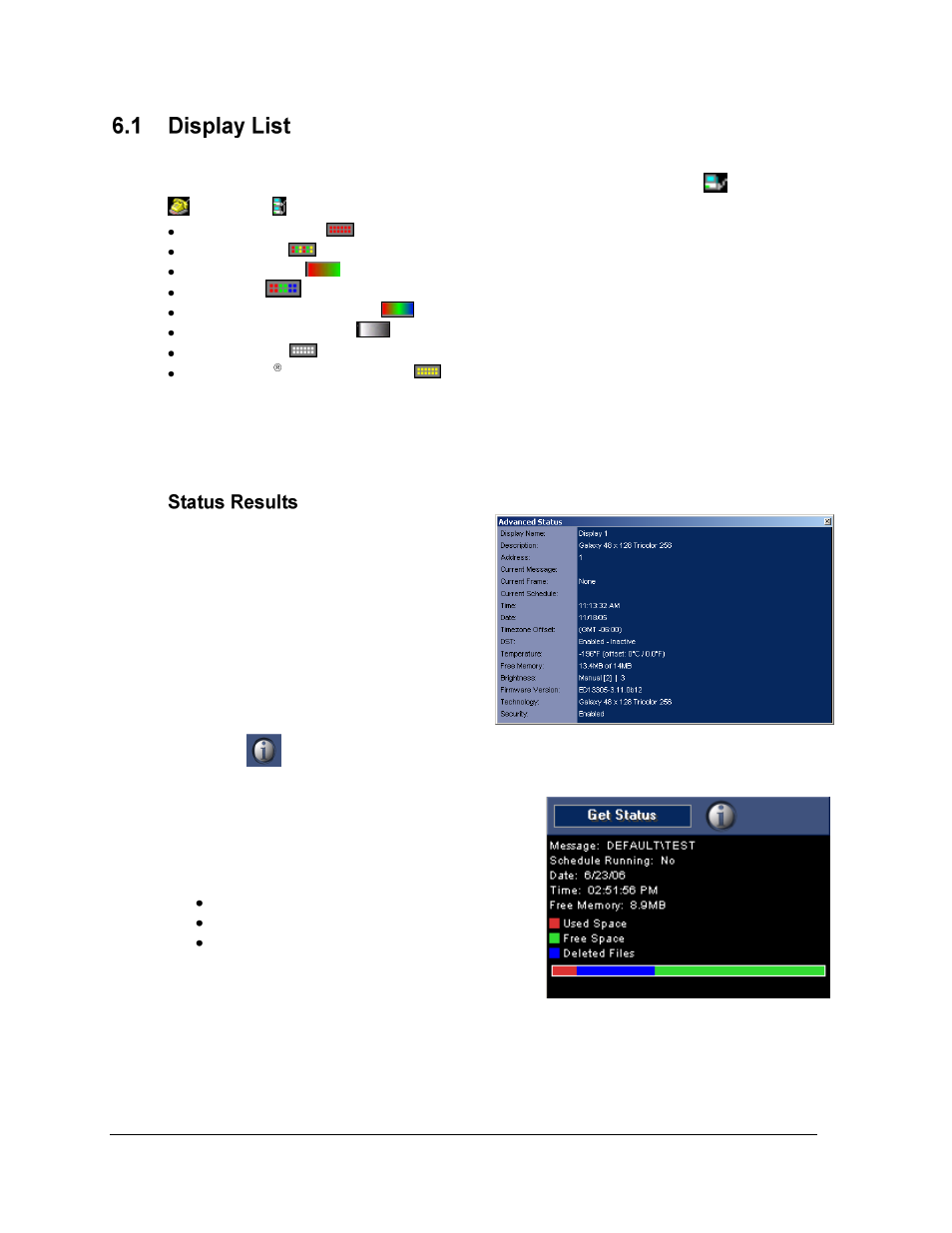Display list, Status results, Figure 143: advanced status – Daktronics Venus 1500 Ver 3.x User Manual
Page 132: Figure 144: available memory gauge

The Venus 1500 Display Manager
118
The Display List shows all the displays configured for the Venus 1500 network. In addition to
each display’s name, the list graphically illustrates the connection type (direct
, modem
, or TCP/IP ) and the display technology. This may include:
LED Monochrome
LED Tricolor
LED Tri-256
LED RGB
LED RGB- 32K and higher
Monochrome 64 shade
Incandescent
Glow Cube reflective displays
To select the display with which to communicate (to send messages or schedules, retrieve
message lists, etc.), click once on the name of the display or group of displays in the Display
List.
Check the status of any display at any time
by selecting its name from the Display List,
and then clicking Get Status or double-
clicking on the display’s name. The Venus
1500 connects to the display and retrieves the
current messages and schedules running, the
date and time of the display, and the amount
of memory used and available.
Once display status is retrieved from the
display, view Advanced Status results by
clicking on
.
The Available Memory gauge at the bottom of the
screen shows how much of the display’s memory is
currently used by messages and schedules stored
within the display.
Red –Used space
Green– Available space
Blue– Deleted files (applies to version 3
displays only)
Deleted files are files that have been deleted but still
consume some memory on the display controller. To
free the memory occupied by the deleted files, click
Memory Cleanup. Refer to Section 6.2.
Figure 143: Advanced Status
Figure 144: Available Memory Gauge